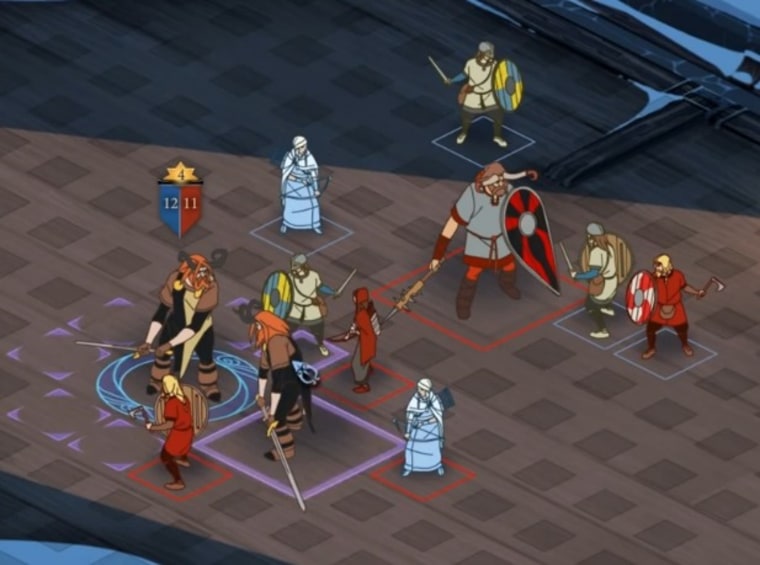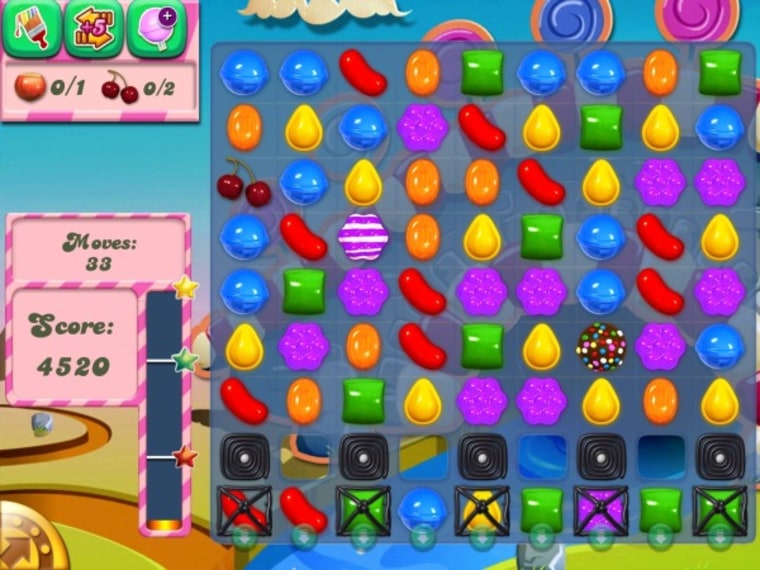The creators of the popular "Candy Crush Saga" video game are zealously protecting not just their trademark of "Candy," but also "Saga" — objecting to the name of a new indie title, "The Banner Saga." The gaming community is not amused.
King.com's "Notice of Opposition" (PDF) to developer Stoic's U.S. trademark application for the game's name was filed on Dec. 27, and reads in part:
9. Applicant's [i.e. Stoic's] THE BANNER SAGA mark is confusingly and deceptively similar to Opposer's [i.e. King.com's] previously used SAGA Marks.11. Upon information and belief, Opposer's goods/services and Applicant's goods will be promoted in the same channels of trade to the same consumers or class of consumers.12. Due to the similarity between Applicant's claimed mark, THE BANNER SAGA, and Opposer's SAGA Marks, the closely related nature of the goods and service of the respective parties, customers and potential customers are likely to believe that Applicant's goods originate from Opposer, resulting in a likelihood of confusion in the marketplace, and damage to Opposer.
None of these boilerplate claims appears to hold up under the slightest scrutiny, of course: "The Banner Saga" is a Norse-themed fantasy RPG for the PC, and King.com's games are coffee-break puzzle apps for mobile phones and tablets. King.com doesn't even own the "Saga" trademark, just trademarks for several games with "Saga" at the end.

Furthermore, there are dozens of games that use "Saga" in the name in a similar way, from "Xenosaga" to "Unlimited SaGa," and more generic uses like "God of War Saga" to connote a large collection. Indeed, "Saga" is simply a generic term for an epic story (with Norse origins, no less) and is a natural fit for game titles.
Critics have also pointed out that "Candy Crush Saga" itself is largely a clone of previous "match-three" games, and borrows more than a little of its aesthetic from the classic board game "Candyland" — the makers of which have yet to object to King.com's use of the word "candy" (the U.S. trademark is open to opposition before being granted; it's already been granted in the E.U.).
But Stoic is a small developer and may have trouble mustering up the legalese to present these plain facts to a trademark officer or judge. Like many small companies or individual developers under legal threat, the only choice may be to acquiesce and bow to the larger company's demands. "The Banner Saga" could become "The Banner Story" or the like, or could conceivably be prevented from being sold.
Before getting the pitchforks out and heading to King.com headquarters (in London), consider that trademark law often compels companies to aggressively defend marks in this way, as nonsensical as it sounds. The logic is that if King.com only files opposition to a few "Saga" or "Candy" items, the objection is possible that the company has "abandoned" its trademark in one case but not another.
As King.com explained to gaming blog Kotaku:
We do not have any concerns that "Banner Saga" is trying to build on our brand or our content ... If we had not opposed "Banner Saga"'s trade mark application, it would be much easier for real copy cats to argue that their use of "Saga" was legitimate."
The system may compel these legal threats, but that doesn't make them any more palatable to gamers — or any less dangerous to small outfits like Stoic. What does the developer make of the whole situation?
"King.com claims they're not attempting to prevent us from using The Banner Saga, and yet their legal opposition to our trademark filing remains," wrote Stoic's Alex Thomas in a statement provided to NBC News. "We won't make a viking saga without the word Saga, and we don't appreciate anyone telling us we can't."
Devin Coldewey is a contributing writer for NBC News Digital. His personal website is coldewey.cc.
